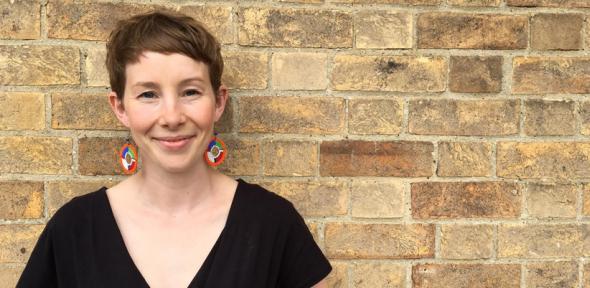
Dr. Sarah Abel
PhD in Social Anthropology and Ethnology, EHESS Paris
MPhil in Latin American Studies, University of Cambridge
BA (Hons) in Modern and Medieval Languages (Spanish and French), University of Cambridge
Research
I am a social anthropologist with an interdisciplinary background, and my research specialises in dynamics of “race”, racisms and antiracisms in American societies. As a British Academy postdoctoral fellow (2019-2024), my current project looks at how visual representations of the body, and skin colour, in particular, are being mobilised in the context of contemporary public and scientific discussions around racism, and as part of broader antiracist projects in Mexico. In particular, my research asks: how are visual regimes being used to reproduce or disrupt traditional ideas about Mexico as a ‘post-racial’ nation, the role of mestizaje as a basis for national identity, and conceptions of Whiteness as a racial ‘ideal’? In what ways has the recent focus on skin colour as a marker of social inequality been used to propel public debates, and forge transversal alliances, identities and movements against racism and other intersecting forms of oppression?
Broadly speaking, my work is concerned with how ancestry and identity become inscribed in and on bodies through biocultural processes and biopolitical regimes, and the ways in which contemporary antiracist programmes seek to challenge these legacies. In previous research, I have focused on how genomic technologies are created and implemented in ways that reflect and interact with local preoccupations about “race”, ethnicity, and national identity. My doctoral thesis compared how personalised DNA ancestry tests have been mobilised in Brazil and the United States in the past two decades, in particular as a means of redressing the legacies of slavery by reconstructing genealogical links between African-American and African populations. My monograph, Permanent Markers: Race, Ancestry, and the Body after the Genome (2022, UNC Press), looks at how the current availability of personalised DNA ancestry data is intervening in scientific and public discourses about the relationship between DNA and identities, and asks how far genetic knowledge can be a useful tool for tackling forms of racism.
I have been a member of two major interdisciplinary European networks (EUROTAST and CitiGen), and my research has been awarded funding from the EU’s Marie Skłodowska-Curie Actions programme, Humanities in the European Research Area, and the British Academy. I have conducted fieldwork in the US, Brazil, Iceland, Cuba and Mexico, and would be interested in hearing from prospective MPhil students who are working on topics relating to “race”, ethnicity, and scientific regimes of knowledge in American societies.
Research interests
- Comparative studies of racisms and antiracisms
- Representations of skin colour in ‘mestizo’ societies
- Impacts of genetics and anthropology on knowledge production about “race”, ethnicity, human origins
- DNA ancestry testing and genealogy
- Anthropology of naming practices
- Histories and legacies of transatlantic slavery
Selected publications
Monograph:
Abel, Sarah. 2022. Permanent Markers: Race, Ancestry, and the Body after the Genome. Chapel Hill: University of North Carolina Press.
Selected articles:
- Ortega Domínguez, Abeyamí, and Sarah Abel. Forthcoming. ‘Public Art and the Grammars of Antiracism’. In The New Public Art: Collectivity and Activism in Mexico since the 1970s, edited by Mara Polgovsky Ezcurra. Austin: University of Texas Press.
- Abel, Sarah, and Catherine J. Frieman. 2023. “On Gene-ealogy: Identity, Descent, and Affiliation in the Era of Home DNA Testing”. Anthropological Science, 131, no. 1: 15–25.
- Abel, Sarah. 2022. ‘Linked descendants: genetic-genealogical practices and the refusal of ignorance around slavery’. Science, Technology, & Human Values 47, no. 4: 726–49.
- Abel, Sarah. 2021. ‘Lo que los ojos no alcanzan a ver: genómica, color, y cuotas “raciales” en Brasil’. In Educaciones y racismos. Casos y reflexiones, edited by Saúl Velasco Cruz, María de los Ángeles Gómez Gallegos, and Diego Francisco Morales Esquivel, 280–316. Colotlán: Universidad de Guadalajara, Centro Universitario del Norte, Universidad Pedagógica Nacional.
- Abel, Sarah. 2020. ‘Rethinking the “Prejudice of Mark”: Concepts of Race, Ancestry, and Genetics among Brazilian DNA Test-Takers.’ ODEERE 5, no. 10: 186–221.
- Abel, Sarah, and Hannes Schroeder. 2020. ‘From Country Marks to DNA Markers. The Genomic Turn in the Reconstruction of African Identities’. Current Anthropology 61, no. S22: S198–209.
- Abel, Sarah, and Gísli Pálsson. 2020. ‘Dépister l’ancestralité : machines et techniques généalogiques dans la reconstruction des histoires de famille’. Ethnologie française 2, no. 178: 269–84.
- Abel, Sarah, and Krystal Tsosie. 2019. ‘Family History and the Global Politics of DNA’. International Public History 2, no. 2.
- Abel, Sarah, George F. Tyson and Gísli Pálsson. 2019. ‘From Enslavement to Emancipation: Naming Practices in the Danish West Indies’, Comparative Studies in Society and History 61, no. 2: 332–365.
- Abel, Sarah. 2018. ‘What DNA Can’t Tell. Problems with Using Genetic Tests to Determine the Nationality of Migrants’. Anthropology Today 34, no. 6: 3–6.
